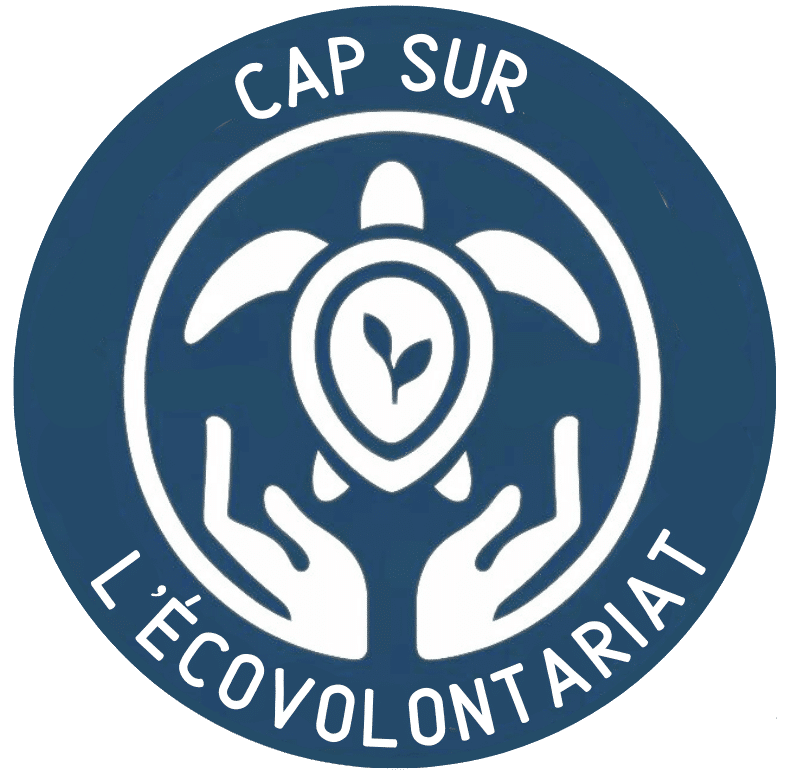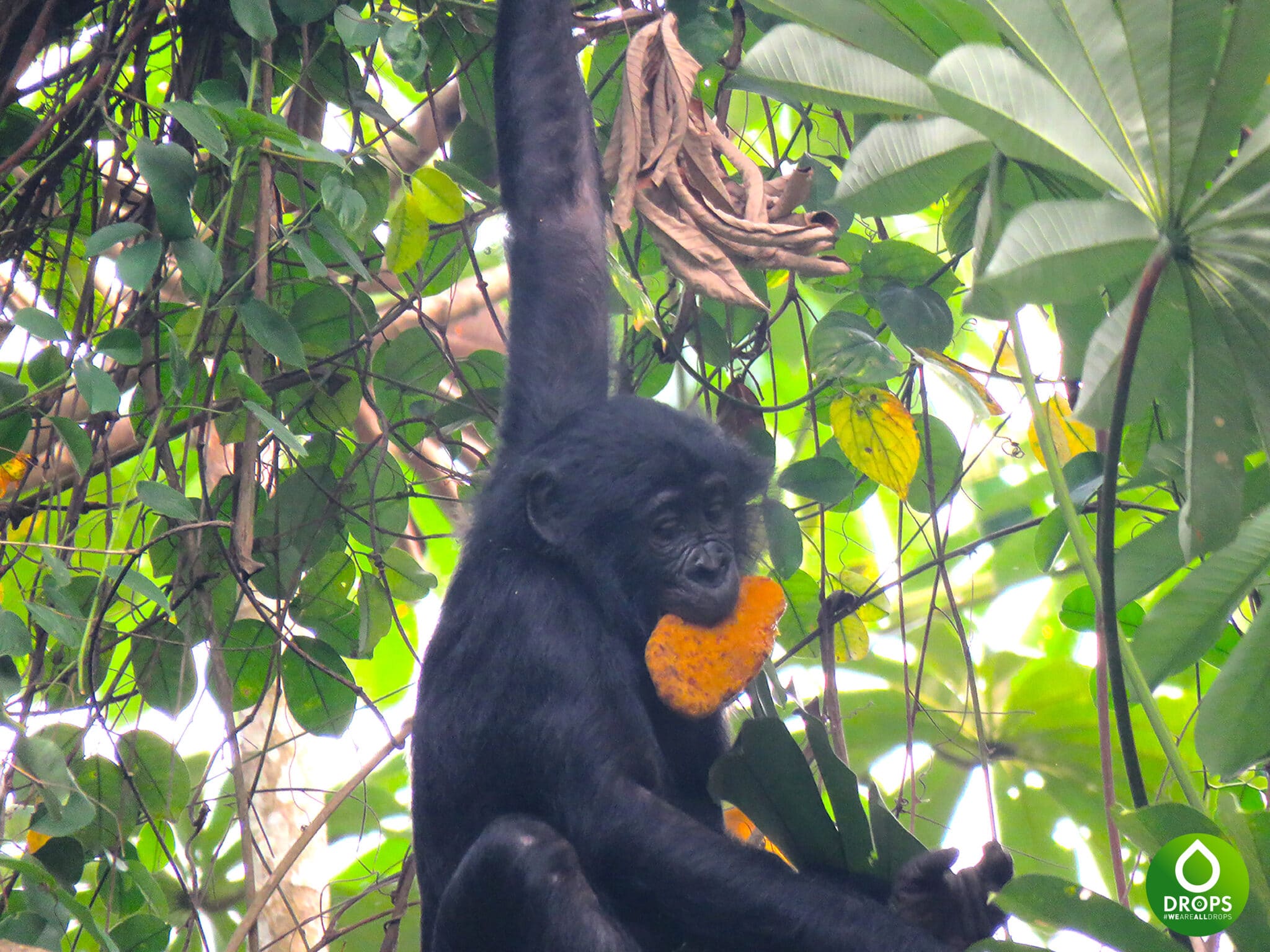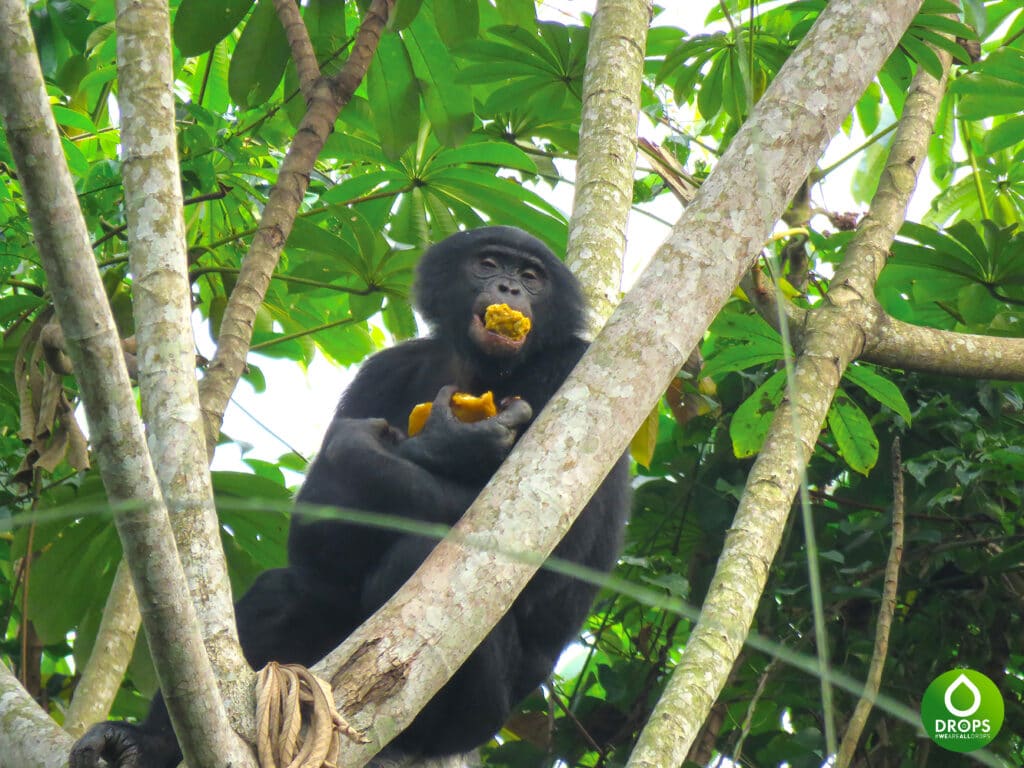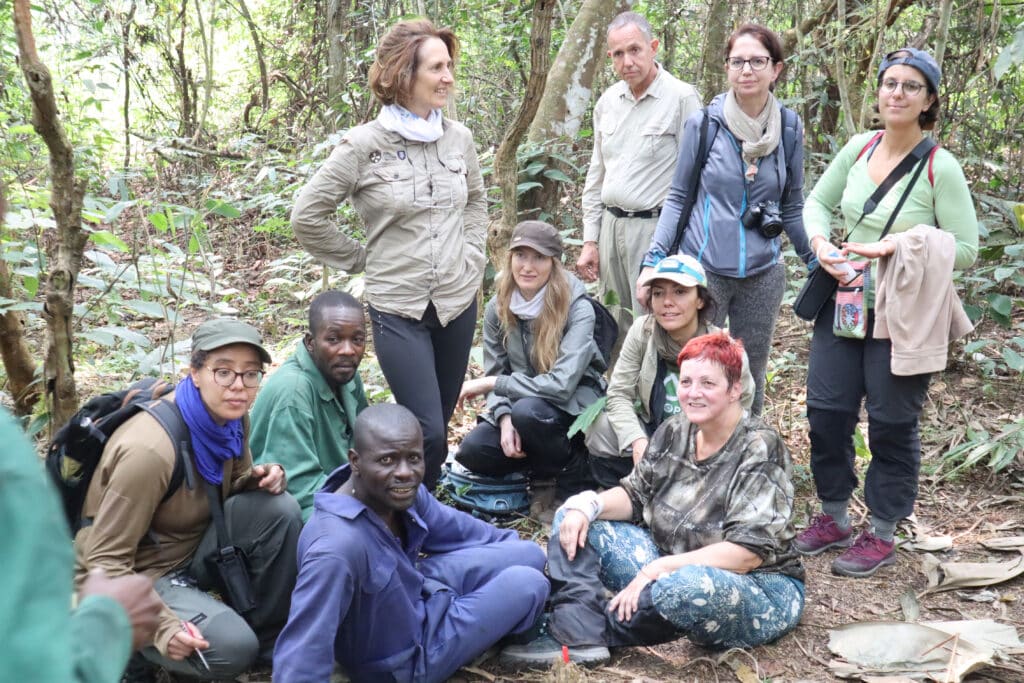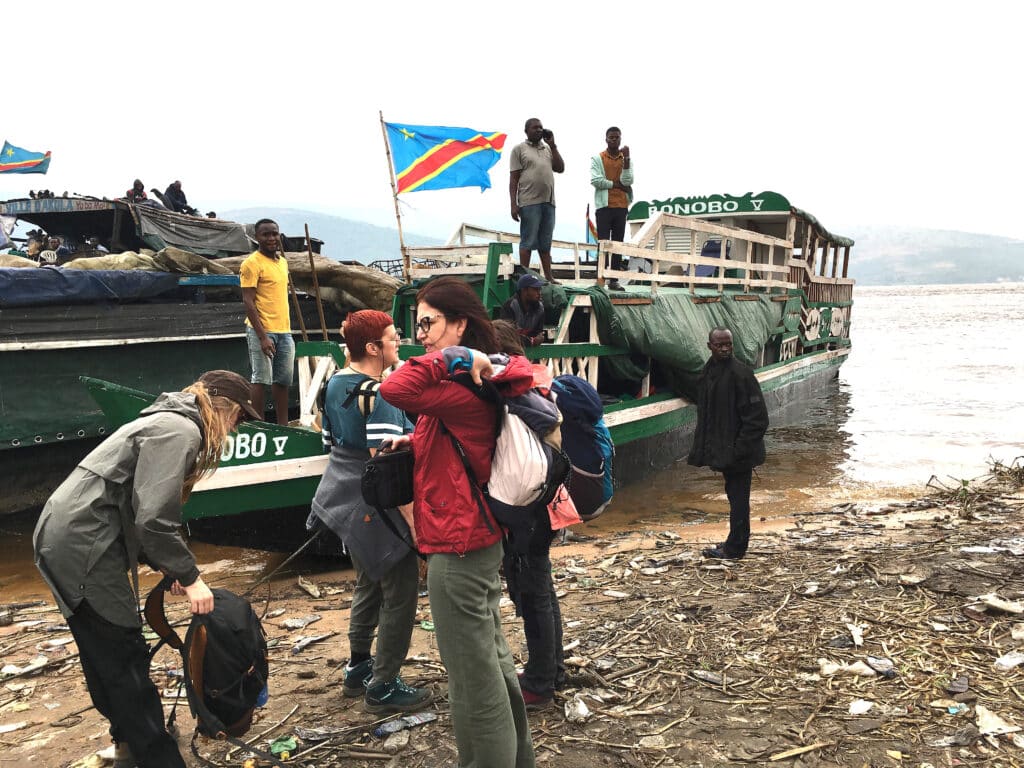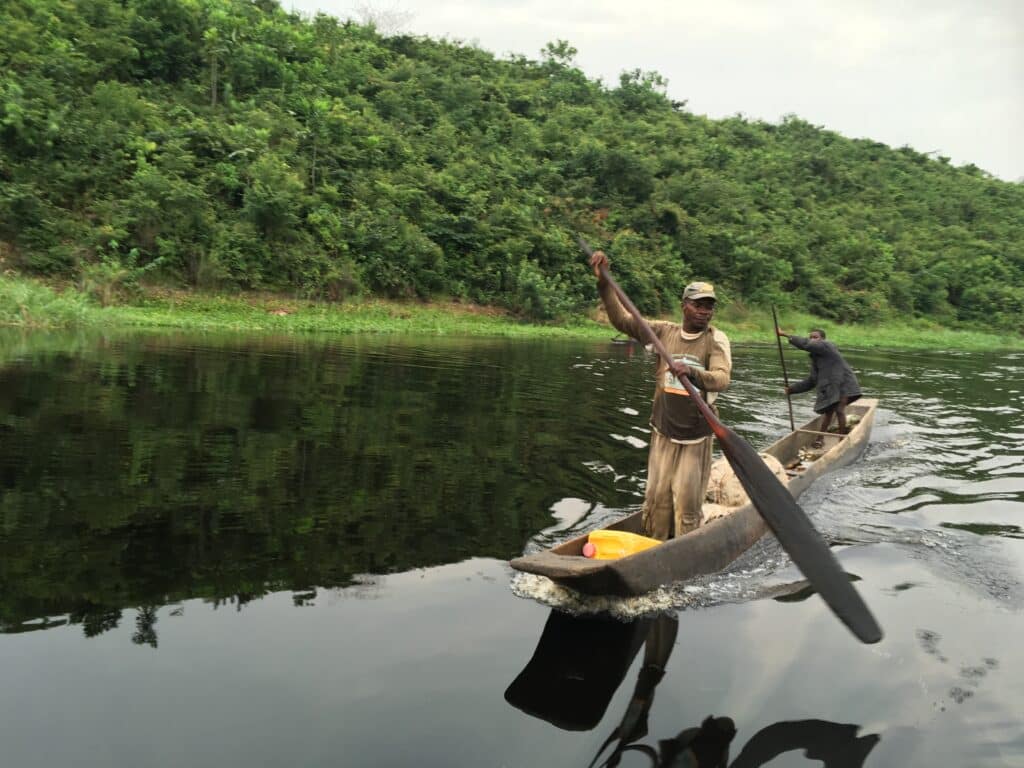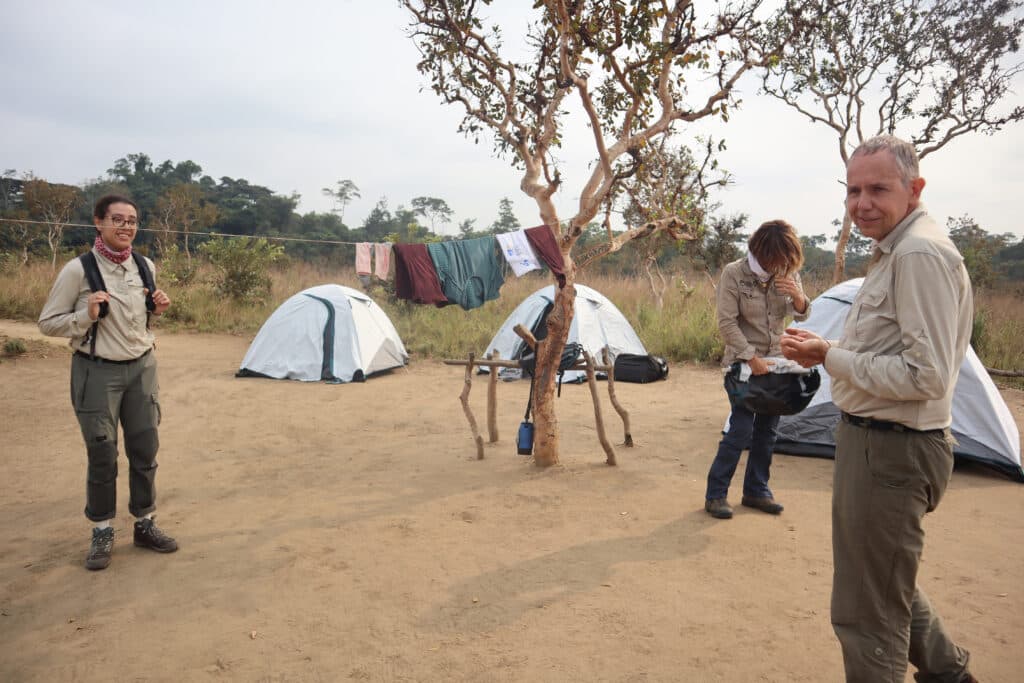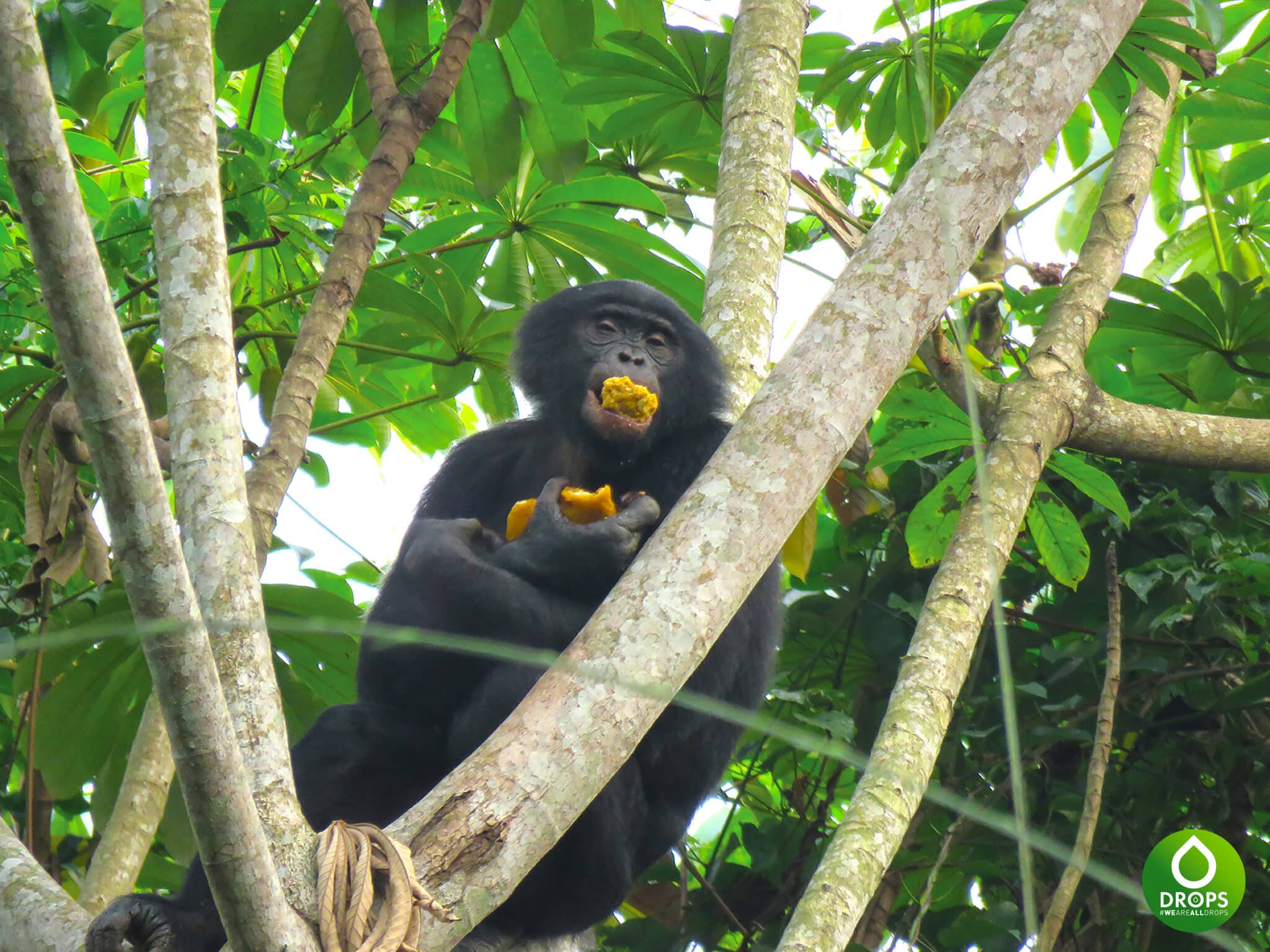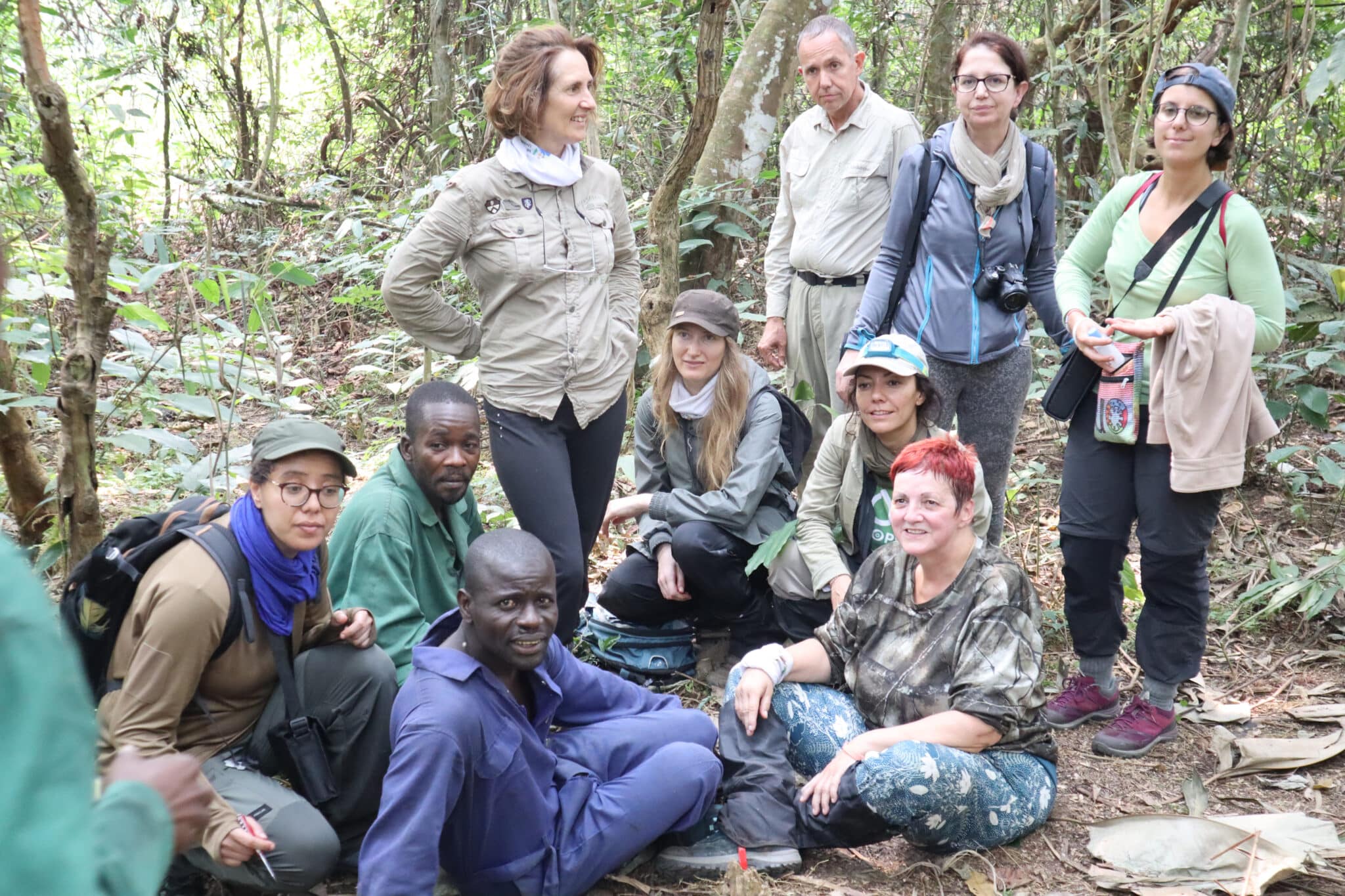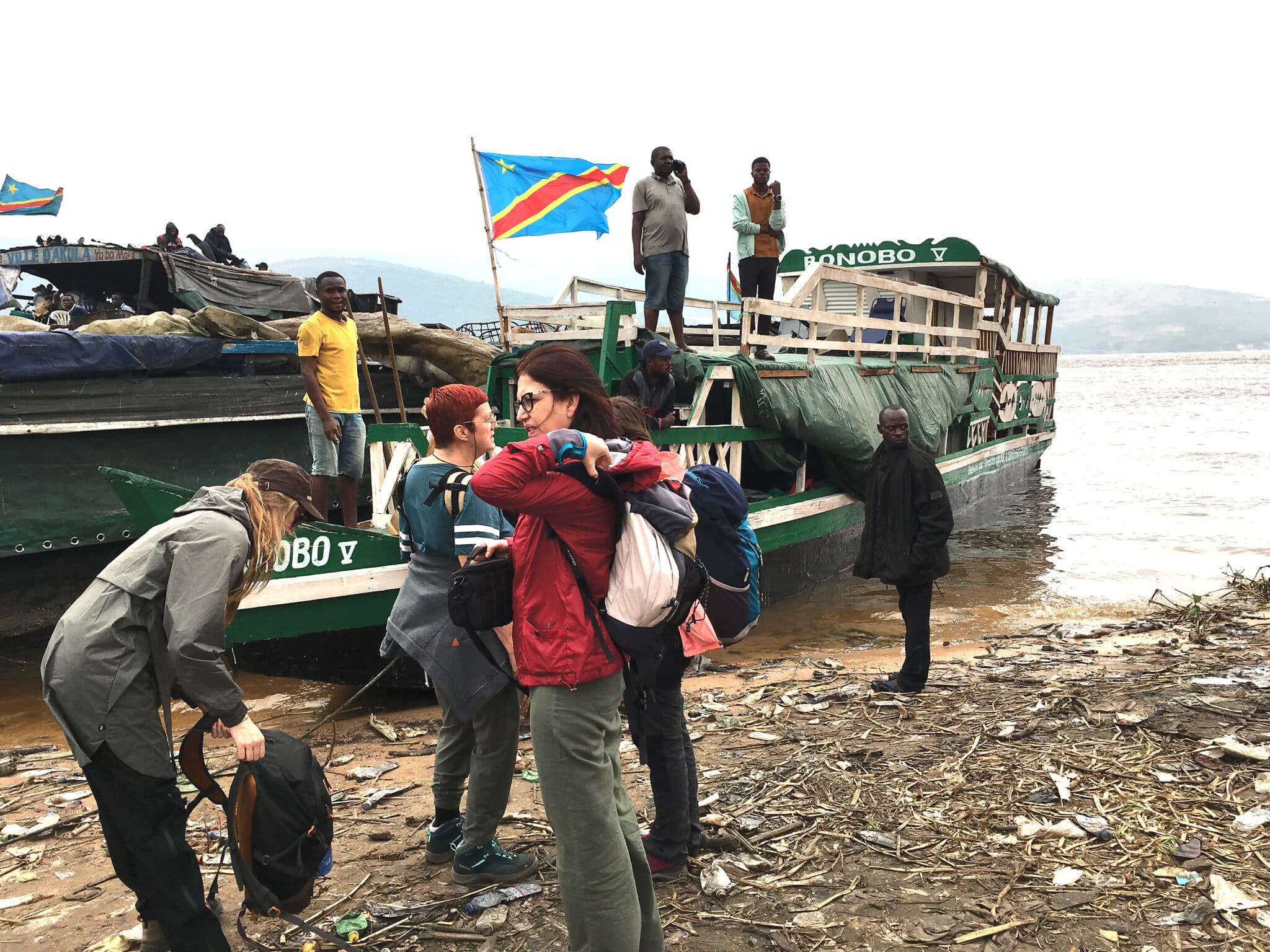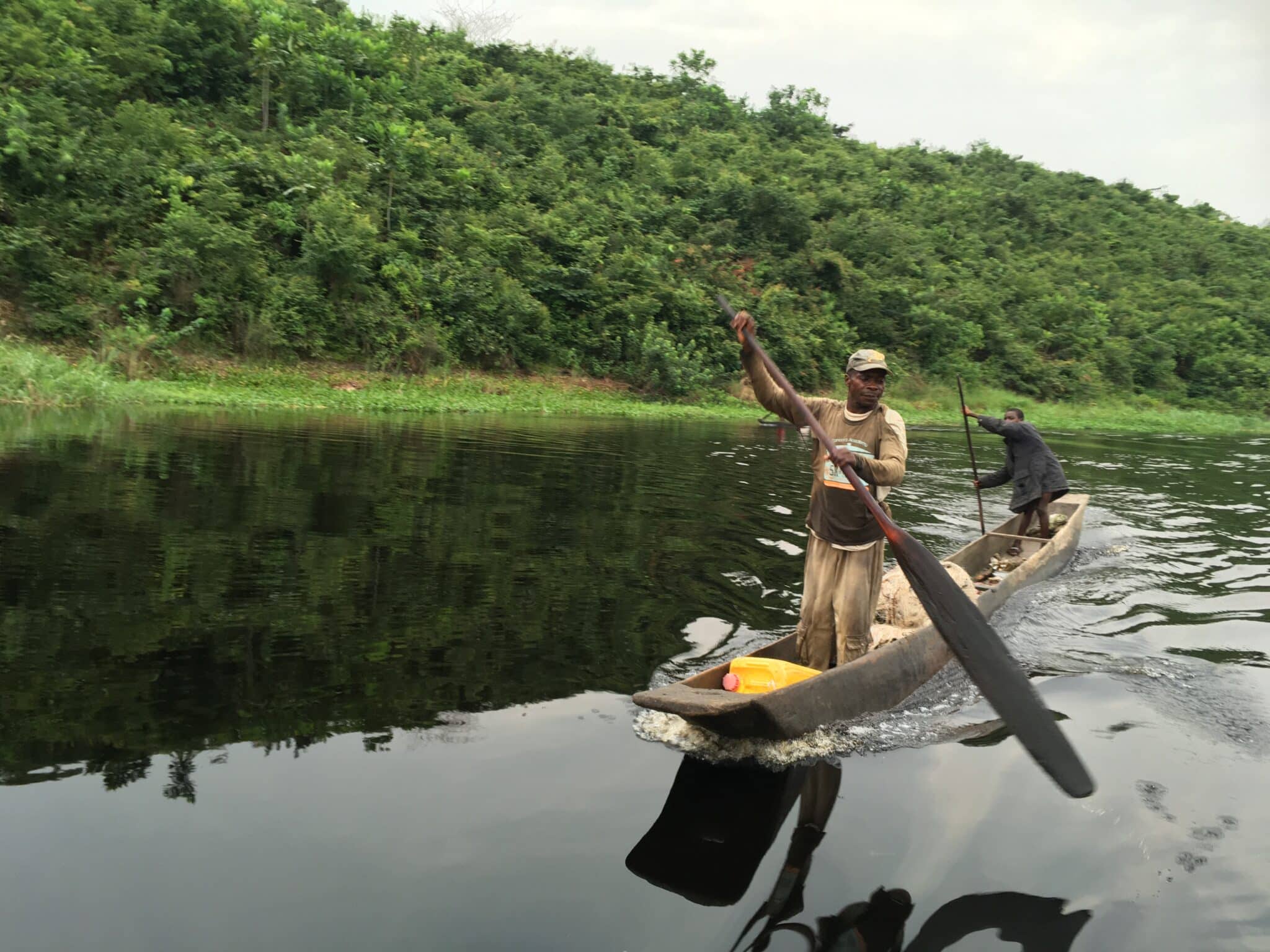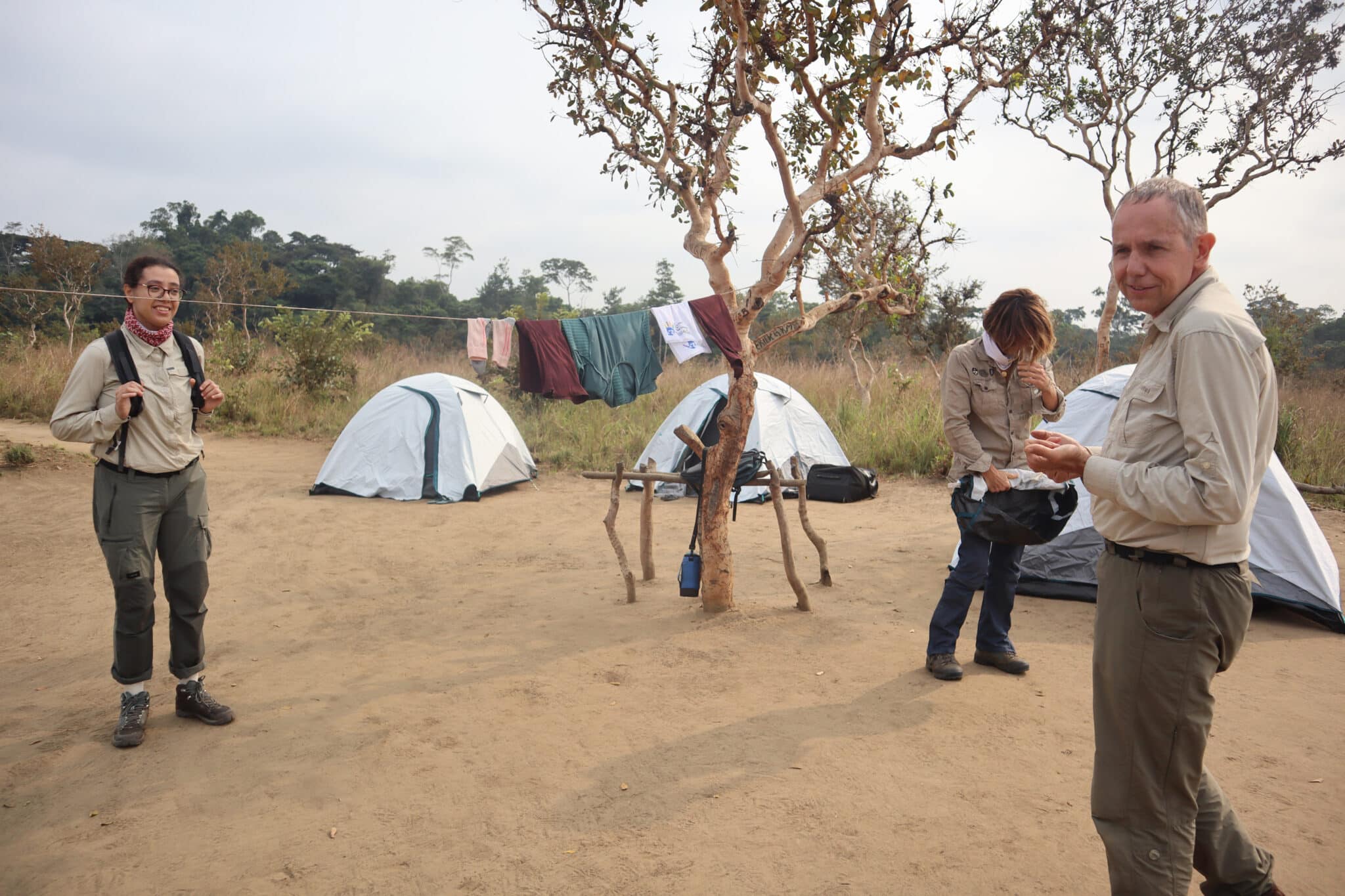Take part in a participatory research project on the Bonobo in the heart of the Congo. The bonobo, closely related to the common Chimpanzee, also known as the dwarf chimpanzee, is a species endemic to the Democratic Republic of Congo. On the IUCN (International Union for Conservation of Nature) Red List of Threatened Species since 2016, it urgently needs to be studied to better protect it. That's what you'll be doing on this scientific expedition, in the heart of a rich natural environment, in partnership with the local population. All participative science trips here
Bonobo research
This research project aims to gain a better understanding of the bonobo in the bolobo territory of the Democratic Republic of Congo. The bonobo is an endemic species living in the community forests of Batéké-Nord, in the west of the country. The aim is to evaluate and reinforce the strategy put in place by the local population for the long-term protection of these apes. The aim is to carry out an actual inventory of the bonobo population, and to set up a monitoring system for individuals in the study area.
This research is based on three main pillars
- Monitoring bonobos to estimate their numbers and study their evolution over time;
- The study of bonobo habitats, lifestyles and ecological niches;
- The fight against poaching through field actions and awareness-raising campaigns at local level.
The aim is to answer the following questions
- How do bonobos live, with each other and with the other living beings in their ecosystem?
- Is it possible to characterize their habitat in order to better understand what would be an optimal living environment for their well-being? The aim is to preserve this habitat in an ethical and sustainable way.
- What is the bonobo diet? Is it possible and relevant for humans to draw inspiration from bonobo dietary practices?
- How can we improve relations between bonobos and villagers and contribute to a peaceful and benevolent coexistence between these two communities?
Your involvement in this participatory science trip
In partnership with the We are All Drops association, part of the stay takes place on the M'Bou Mon Tour (MMT) farm, and another part in bivouac. M'Bou Mon Tour is an NGO created in 1997 by villagers. Aware of the role played by local communities in maintaining the bonobos, MMT did not set out to create a nature reserve in the traditional sense of the term. Instead, it has opted for participatory actions that prioritize a part of the forest for bonobo conservation. All the while, the local communities benefit from the spin-offs of this conservation policy.
Bonobo tracking
Your job is to monitor bonobos on a daily basis. You'll go out into the forest with a monitoring form on which you'll record all the information collected, such as the GPS coordinates of the individuals observed and identified each day. This will enable us to map the geographical dispersion of individuals and populations according to season, and to study inter-individual variability in behavior, etc.
What you'll learn
- Scientific field research using research protocols and manipulating scientific data;
- Primatology: animal biology, animal physiology, ethology, great apes, bonobos, animal evolution, phylogeny, systematics, ecosystems, ecology, ...
- Environmental issues in the DRC: tropical forest, savannah, community forest, river, Congo River...
- The fundamental human concepts of solidarity, partnership, intercultural exchange...
- From Saturday, July 13 to Saturday, July 27, 2024
- Saturday, August 3 to Saturday, August 17, 2024
Fees
- 4675 € - 1590 € after tax deduction *)
Included in price
- French-speaking supervision
- Meals
- Housing
- Airport transfer
- Local team support
Not included in price
- Plane ticket
- Travel insurance
- Personal expenses
- Vaccination costs
Tax deductible *
The NGO partner Objectif Sciences international is recognized for the quality, usefulness, solidarity and educational nature of its stays and training courses dedicated to achieving the goals of sustainable development. The NGO operates on the donation-action principle. A person makes a donation and participates in an NGO action. Note that the person making the donation may be different from the person taking the action. As such, the cost of the training or scientific stay is tax-deductible up to 66% in France.
- Adults, from 16 accompanied
- Good physical condition
- Tailor-made dates for groups of 10 or more.
- Reception of participants in Kinshasa (at the airport)
- Supervision is French-speaking. It is provided by an assistant primatologist, an educational and logistics manager (Drops Association) and a logistics coordinator for the NGO M'Bou Mon Tour.
Housing
Part of the stay is spent in a tented bivouac, and another part on the M'Bou Mon Tour farm. At the farm, the rooms have shared showers and a purely authentic Congolese catering service.
You'll experience a real human adventure, immersed in the heart of Congolese nature. You'll get to know a country where culture and history are linked to the Bonobo heritage.
This trip will also be an opportunity for you to explore the natural beauty of the Congo River and admire its flora and fauna.
You'll move between savannah and tropical forest, in a unique territory with a rich biodiversity. You'll see bonobos, antelopes, buffalo, wild boar, porcupines, elephants and small monkeys.

The NGO partner
Partner NGO Objectif Sciences international has Special Consultative Status with the UN (ECOSOC) and is a member of the AAAS Science and Human Rights Coalition. Specializing in scientific trips, science and participatory research, the NGO believes that education is the driving force behind the Sustainable Development Goals. It offers a range of participatory science trips for adults and minors. All OSI programs here
